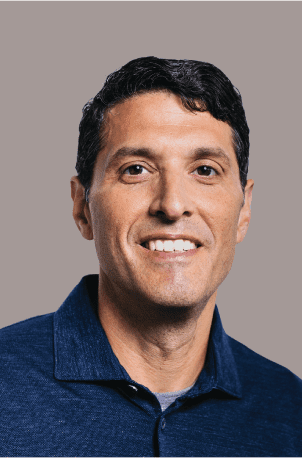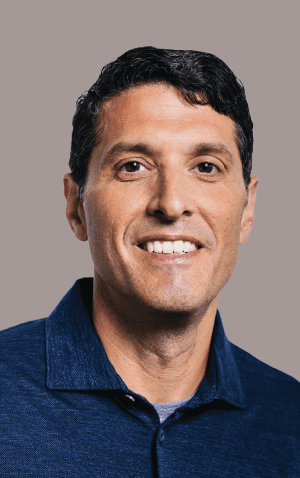Season 4: Episode #128
Podcast with Terry Myerson, Chief Executive Officer, Truveta
 Hosted by Paddy Padmanabhan
Hosted by Paddy Padmanabhan 
Share
Terry Myerson leads a very interesting organization – Truveta – that’s trying to aggregate healthcare data from health systems across the country in a de-identified form. They then combine this data with other sources to generate insights that drive clinical research and outcomes and develop new therapies and molecules.
In this episode, Terry discusses Truveta’s value proposition for health systems and life sciences organizations, their data sets to generate insights and the technological challenges in bringing the data sets together. We also touch on a variety of other topics, including the digital health startup landscape. Take a listen.
Show Notes |
||||
| 00:29 | What’s the market need that Truveta is trying to address? | |||
| 05:48 | How many health systems are members of Truveta’s consortium? What do they get out of it? | |||
| 07:10 | What kind of data do you gather from the results? Is there any other data that you bring into the Truveta platform as part of your insights and analysis? | |||
| 08:55 | Can you talk about the types of insights you have given back to your members? Tell us about some of the use cases you've been able to generate using this data set. | |||
| 11:53 | How do you protect the privacy of the data? Are there any special precautions that you take to ensure this? | |||
| 13:14 | You're not selling the data, but you are selling insights generated from the analysis of the data --- is that correct? | |||
| 15:10 | What’s been challenging from a technology standpoint in bringing all these datasets together from across the world's healthcare organizations? | |||
| 20:20 | What do you see as the current moment in digital health funding landscape? | |||
| 21:44 | What's your advice to a startup founder who wants to get into digital health today? | |||
About our guest

Terry Myerson is the Chief Executive Officer of Truveta. A leader for teams responsible for some of the world’s most popular technology platforms, Terry Myerson enjoyed a 21-year career at Microsoft. As Executive Vice President, Terry led the development of Windows, Surface, Xbox, and the early days of Office 365. Serving on the Senior Leadership Team, Terry played a pivotal role in developing the strategy for Microsoft alongside CEO Satya Nadella. Terry excelled at managing large teams at scale, tackling complex software challenges, and driving growth in partnership with the technology ecosystem.
After leaving Microsoft in 2018, Terry joined the Madrona Venture Group and the Carlyle Group as an advisor to their investment teams and portfolio companies. He enjoys learning about new technology, particularly at the intersection of data and life sciences, and helping new companies succeed. He continues with both firms today as an advisor.
An entrepreneur at heart, prior to Microsoft Terry cofounded Intersé, one of the earliest internet companies, which Microsoft acquired in 1997.
Terry is a graduate of Duke University and a current member of the Duke Engineering Board of Visitors. He also serves as a member of the Board of Trustees for the Seattle Foundation.

Terry Myerson is the Chief Executive Officer of Truveta. A leader for teams responsible for some of the world’s most popular technology platforms, Terry Myerson enjoyed a 21-year career at Microsoft. As Executive Vice President, Terry led the development of Windows, Surface, Xbox, and the early days of Office 365. Serving on the Senior Leadership Team, Terry played a pivotal role in developing the strategy for Microsoft alongside CEO Satya Nadella. Terry excelled at managing large teams at scale, tackling complex software challenges, and driving growth in partnership with the technology ecosystem.
After leaving Microsoft in 2018, Terry joined the Madrona Venture Group and the Carlyle Group as an advisor to their investment teams and portfolio companies. He enjoys learning about new technology, particularly at the intersection of data and life sciences, and helping new companies succeed. He continues with both firms today as an advisor.
An entrepreneur at heart, prior to Microsoft Terry cofounded Intersé, one of the earliest internet companies, which Microsoft acquired in 1997.
Terry is a graduate of Duke University and a current member of the Duke Engineering Board of Visitors. He also serves as a member of the Board of Trustees for the Seattle Foundation.
Q. Terry, how did Truveta come about? What’s the market need that you are trying to address?
Terry: Truveta is a company with a vision that we can save lives with data. Using data, we can help researchers find cures faster, empower every clinician to be an expert, and help families make the most informed decisions about their care. That’s our vision and mission.
What do we offer? At the end of the day, we’re raising for any medical product, the most complete, timely, and highest quality data to understand the benefits and the risks of how that product should be or how the procedure or device should be used in a health care environment. There’s always an origin story here about how the company came to be and this one, I think, is just so interesting and eventful.
B.J. Moore, who’s been on the podcast, and I were colleagues at Microsoft two years ago. Since then, he’s moved to Providence. I’d left to join a venture capital firm. I had also become fascinated with the intersection of data sciences and life sciences. B.J. and I stayed in touch and when the pandemic started, he introduced me to this project where, there’s this effort inside the health system to try and understand what’s going on with this pandemic. The health system didn’t have the tools in the early stages of the pandemic to ask and answer questions about whether they should treat symptomatic patients with Dexamethasone or Remdesivir. We’re hearing both work well, but which one should be used? Who should be intubated for how long? There were just no tools to ask or answer those questions.
Building on that, Providence, Northwell and Trinity Health Care, three organizations that didn’t know each other so well at that time, tried to collaborate, ask, and answer questions like that. But they had no regulatory or technical framework or legal frameworks to work together, share data, ask, and even answer questions. We could build, learn from each other, and compare results but there was no ability to do that. Then, we had a life science company, a pharmaceutical company, which was selling these drugs and trying to learn they had no ability to learn off of the same data.
So, this idea that we could build this unprecedented data set that would connect life science and health care organizations into one learning community, that would really drive learning, and help us find those cures faster, figure out the safety, and effectiveness of these various medical products or procedures happened to be one of those that felt like just this incredible opportunity for the health care systems to come together and build something new for the world.
Q. Can you tell us a bit about your background? You did spend a long time at Microsoft and B.J. was your friend. So, how did you get here?
Terry: I spent almost 22 years at Microsoft. For the last decade, I was leading Windows Surface and Xbox. B.J. and I left Microsoft in 2018 and it was the pandemic, in 2020, that reconnected us.
When I got connected to this project in Providence later, I realized that Truveta was an idea that actually started in 2018. It revolved around how health care systems could put their data together to create a data set which they could learn from. It was white papers and PowerPoints. It was a great idea but it took a pandemic for us to really galvanize that and turn it into a company. Without the pandemic, it was just my awareness of the issue or the lack of this.
When you first get exposed to Truveta as an idea, you go, “How could this not exist already? How could it be that we don’t have a data set representative the full diversity of our country? How’s it that we can study any drug disease or device? How could this not exist?”
I didn’t know it didn’t exist. When I got exposure to the fact that it didn’t exist and there was a coalition of willing health systems that wanted it to exist, it just felt like the most meaningful thing. I could spend the rest of my career working on it.
Q. With regard to the Truveta System, how many health systems are members of the consortium? What do they get out of it?
Terry: Truveta started with four health systems in September, 2020. We announced 14 in February, 2021, and now, there are more than 20 large, leading health systems across the United States. More will be announced soon.
I think it’s just amazing how they’ve come together. They’re motivated by participating in this learning community for health, so, they can ask and answer questions, get data representative of the United States, and share those studies with each other while building on each other’s work. That access they get is going to help them take better care of patients.
We’re taking their data as normalized, structured, and de-identified data. They get access to all this for use in their health care operations and we pay them. So, they make money when their data is used by others in their research and they are compensated.
Q. What kind of data do you gather from results? Is there any other data that you bring into the Truveta platform as part of your insights and analysis?
Terry: The healthcare organizations send us medical records which are fully de-identified and validated by a third-party. Those de-identified medical records are being made available for research. Today, we have a partnership with LexisNexis, which is giving us three other important data sets to bring into the corpus.
Before that, there was a token which allowed us to link medical records in the de-identified space across health systems. It’s all coming together into one longitudinal medical record.
They’re also giving us the fact of death. Only one-third of people die inside a health system and so, LexisNexis has its Death Registry up-to-date, daily. Through it, we’re actually seeing if people die on the date they die. Being able to assess death as an outcome for research is very important when without the state and health systems, one doesn’t know if you died.
The third thing is, they’re giving us the largest claims data set in the country. We think about it as we get these deep medical records from all of our 20 + health systems and then, we also get to link it with the medical bills or the claims records.
Last but not the least, we get from LexisNexis the socioeconomic data. This is incredibly vast and includes the social determinants of health. All of that’s coming together as are insights about it. You got the 20 + health systems, fact of that token socioeconomic and mortality data. I maybe forgetting something, but it’s also together in the group of longitudinal records they identified for research. It’s a lot of data.
Q. Can you talk about one or two types of insights that you’re getting back to your members? Tell us a bit about some of the use cases you’ve been able to generate using this data set.
Terry: We talked about COVID and in fact, one of the collaborations we’ve announced since then which we’re quite excited about is Pfizer using the Truveta data set to assess their vaccines and therapeutics in the United States. This company has led the innovation response to COVID globally, and no company responded like Pfizer, one might argue. The fact that they would be using our data, is exciting. It’s terrific and I’m honored.
The other research that has been published is on Colonoscopy screenings in response to Chadwick Boseman’s death. Being African-American and he died of Colon cancer so there was some research done on Colon cancer screenings in the African-American community.
Also, there was some work done in response to the baby formula shortage actually going on in the country trying to understand if there were infant hospitalizations or other infant health issues as a result of the baby formula shortage. This idea that we have this dataset representative of our country and the ability to ask and answer questions quickly is new.
We’re having interesting use cases popping up everywhere but at the end of the day, this is our customers’ research. There’s a research project going on in Savannah, but I’m not talking about what they’re using. But Providence is using our data, Pfizer is using our data or even unnamed customers– they’re using our platform for their investigations and we do expect them to publish quite a bit here in the next year. But it’s their research, not our research to talk about.
Q. How do you protect the privacy of the data? Are there any special precautions that you take to ensure this?
Terry: Security and privacy are just critical. They’re foundational to the company. For full details, we actually have white papers—-a white paper on Security and a white paper on Privacy—on our website, which I would encourage anyone who really wants a double click on these to go get them.
We have the HIPAA too, which is our healthcare privacy law in the United States which sets in place two standards for de-identification—one called Safe Harbor, where you lose geography and timestamp information and expert de-identification.
Truveta follows the expert de-identification model so, we have expert determiners that assess all of our systems. The white papers have some great information so, I would encourage anyone who wants to read more to go there.
Q. The monetization model for Truveta is derived from the use of the data, not necessarily the data itself. You’re not selling the data, but you are selling insights generated from the analysis of the data — is that correct?
Terry: I’m not sure. The health systems themselves have access to study the data for their own research. But life science firms that are engaged with it right now are subscribing to study a disease or set of diseases and so on. We tell them to come and analyze the data, look for safety effectiveness or health equity issues in COVID or Multiple Sclerosis or heart disease. You’re subscribing to a disease so, you can ask and answer as many questions as you want during the time of your subscription.
Q. Don’t they get to take a copy of the de-identified data stack into their environment and use it for other purposes such as marketing campaigns etc.? I assume there are permissible uses in there.
Terry: I think there’s two different questions that you might ask there. There’s the data which is to be used for health care research, and not for advertising. Using the data for advertising is explicitly not a permissible use.
But there are circumstances in which they will need to take data out if you’re making a regulatory filing. If you are, there are just some scenarios where we do allow them to extract patient cohorts. Therefore, the concept of the subscription.
Q. Let’s talk about the tech stack for Truveta. It is built on Microsoft Azure as a cloud platform. What are the other big components of the tech stack? What’s been challenging from a technology standpoint in bringing all these datasets together from across the world’s healthcare organizations?
Terry: We’ve talked about two of the biggest challenges—Security and Privacy.
The third biggest challenge is Normalization and it’s not even the fact that it comes from diverse health care systems. Different conditions record outcomes, side effects, recommendations in a different language, often in their vernacular — that’s probably influenced by where they were trained.
So, you have these vast amounts of clinical notes that have so much insight on patient care and that normalization of unstructured data into an ontology of structured terms that can be used for analysis that the AI which drives that process, which actually is another white paper on our website, is a data quality white paper, which goes through that whole process of how we take all that unstructured data and turn it into a high quality data stream for analytics.
So, security, privacy, and normalization are the challenges and then there’s scale. High volumes of data is one thing, and Providence is an incredible system but B.J.’s also got a number of scale challenges.
When you add Providence, Trinity, Northwell, Tenet and Baptiste you know it’s a large lot and that’s the Truveta data challenge— far larger than any one health system anywhere in the world.
Q. To get a sense of the scale and the magnitude of how large the data set is, are we talking about what percentage of the U.S. population it covers among these top 20?
Terry: When you include the LexisNexis claims data, which fills in the gaps and when you’re looking at 100% of adult Americans, then, you know, for Non adults I wouldn’t know the number.
Q. There’s a lot of similar efforts underway now – the Sequoia Project for one to tackle the interoperability issue, and then, you’ve got Graphite, which is kind of a spinoff. There’s also Intermountain and Providence. Are these complementary to each other? Or do you see them as competitive?
Terry: Everyone’s solving a similar but different problem. With Truveta, we’re not solving the exchange of identifiable medical records, we’re not solving being an API layer for applications inside the healthcare system like some of the organizations you just described. But at the core, we’re all looking at security, privacy, and normalization of healthcare data.
As this industry matures, the shape of the boundaries will evolve over time, partners will become competitors and competitors will become partners. But there’s this many different takes on this problem in terms of connecting health care and life sciences to create one shared truth which we can use to really study health.
Thanks for that though. It’s a very unique point of view and I love being part of it.
Q. Truveta’s a unique organization but it’s also a startup and you’ve raised venture capital money. What is going on in the digital health funding landscape? What does the slowing down in funding mean for digital health startups and their customers who make bets on companies that may now be at some kind of financial risk?
Terry: Truveta actually has not taken any venture capital money. Our approach is that the health systems are the biggest stakeholders in Truveta’s success, they contribute their data and so, they should be the owners. I think it’s a very unique approach so no, there’s no venture capital in the company.
I did spend two years in venture capital and it was interesting that the two years I was there, it was easy to invest in everything when the valuations were going up. Somehow high prices made it easier to invest. Now, we have all this uncertainty—war, inflation, layoffs — and somehow the low prices are making it harder for people to invest.
There’s tremendous irony in that. However, for the next decade, I think the companies that make it through the next couple of years will be some of the best investments in the world because it’s an opportunity. We just talked about, the big data on health and I think, those companies are being founded right now.
Q. What’s your advice to a startup founder who wants to get into digital health today?
Terry: My advice would be — Have a great idea. Have a great team. I think that if you have a great team and you’ve got a great idea, you’ll be able to attract capital. You have a bad idea and a bad team, then, that will be harder.
We hope you enjoyed this podcast. Subscribe to our podcast series at www.thebigunlock.com and write to us at info@thebigunlock.com
Disclaimer: This Q&A has been derived from the podcast transcript and has been edited for readability and clarity.
Recent Episodes
About the host
Paddy is the co-author of Healthcare Digital Transformation – How Consumerism, Technology and Pandemic are Accelerating the Future (Taylor & Francis, Aug 2020), along with Edward W. Marx. Paddy is also the author of the best-selling book The Big Unlock – Harnessing Data and Growing Digital Health Businesses in a Value-based Care Era (Archway Publishing, 2017). He is the host of the highly subscribed The Big Unlock podcast on digital transformation in healthcare featuring C-level executives from the healthcare and technology sectors. He is widely published and has a by-lined column in CIO Magazine and other respected industry publications.
Never miss an episode
The only healthcare digital transformation podcast you need to subscribe to stay updated.
Stay informed on the latest in digital health innovation and digital transformation